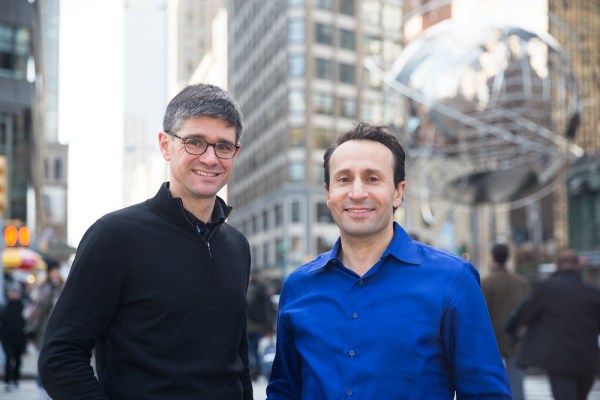Flow, a startup that helps brands and retailers build a cross-border e-commerce business, has raised $37 million in Series B funding.
CEO Rob Keve said that thanks to the magic of social media and digital marketing, many direct-to-consumer brands are reaching consumers around the world. However, the actual shopping experience for those consumers often leaves a lot to be desired — even if there are international purchase options, the shipping is usually slow or expensive, and the site might also fail to integrate with local payment services.
Keve said that he and CTO Mike Bryzek co-founded the Hoboken, New Jersey-based startup to solve this problem: Flow sits on top of existing e-commerce platforms, so that the shopper’s experience (whether that’s a website, app or distributed buy button) is automatically tailored to their location, with local pricing and payment options.
Plus, thanks to Flow’s relationships with carriers, international shipping should be timely and affordable. And even if a business already has international shipping deals and distribution centers, they can still use Flow to manage the logistics.
Founded in 2015, the company said it’s now seeing 200% year-over-year client growth, with customers including online brands like MVMT Watches, as well as omni-channel businesses like MZ Wallace and Charles & Colvard.
With this new funding, Flow has raised around $55 million total. The Series B was led by New Enterprise Associates, with participation from American Express Ventures and Latitude Ventures. NEA Venture Partner Liza Landsman (former president of Jet.com) is joining Flow’s board of directors.
“Cross-border shopping is a rapidly growing area of e-commerce, and more companies are investing in their cross-border strategy to capture that international demand,” Landsman said in a statement. “Flow is a premier vendor in this space, and their platform delivers strategic advantages for brands and retailers entering or expanding into international markets. Our team is excited to support Flow’s rapid growth.”
Keve told me that Flow will use the money to expand its sales and marketing team, and to improve the product. For example, he said he wants to continue developing the artificial intelligence that Flow uses to classify products (necessary for calculating duty and tax costs).
He also said he wants to continue building out Flow’s services business. While it’s important for the company to offer “a turnkey platform,” the technology is also “married” to Flow’s expertise about the strategies that work in each country.
“There’s services and knowledge that is very country-specific and even category-specific,” Keve said. “That is always going to be a matter of consulting and advising and sharing best practices … We will continue to be investing in that layer of expertise.”
